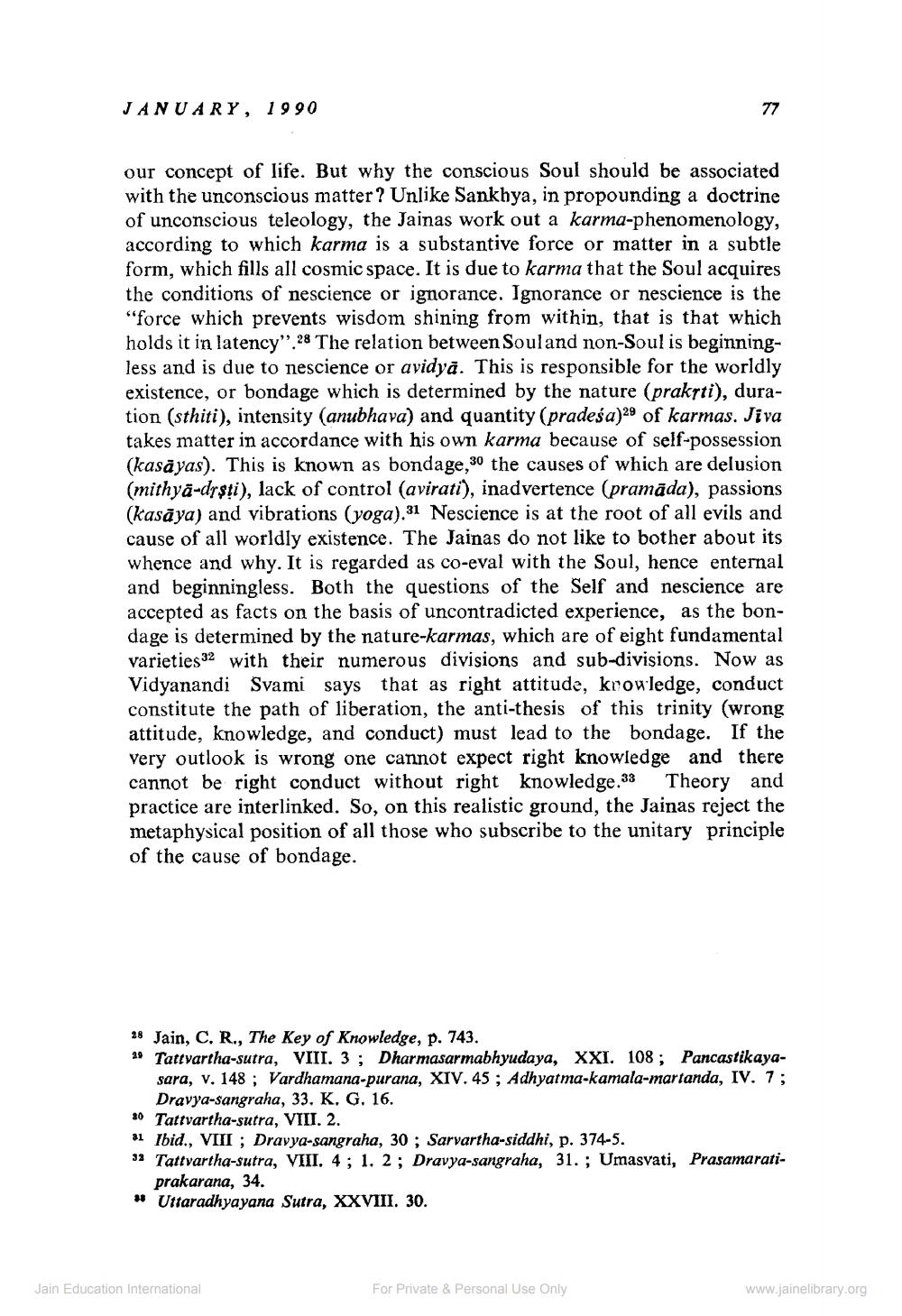________________
JANUARY, 1990
our concept of life. But why the conscious Soul should be associated with the unconscious matter? Unlike Sankhya, in propounding a doctrine of unconscious teleology, the Jainas work out a karma-phenomenology, according to which karma is a substantive force or matter in a subtle form, which fills all cosmic space. It is due to karma that the Soul acquires the conditions of nescience or ignorance. Ignorance or nescience is the "force which prevents wisdom shining from within, that is that which holds it in latency".28 The relation between Soul and non-Soul is beginningless and is due to nescience or avidya. This is responsible for the worldly existence, or bondage which is determined by the nature (prakrti), duration (sthiti), intensity (anubhava) and quantity (pradeśa)29 of karmas. Jiva takes matter in accordance with his own karma because of self-possession (kasayas). This is known as bondage, 30 the causes of which are delusion (mithya-drşti), lack of control (avirati), inadvertence (pramāda), passions (kasaya) and vibrations (yoga).31 Nescience is at the root of all evils and cause of all worldly existence. The Jainas do not like to bother about its whence and why. It is regarded as co-eval with the Soul, hence enternal and beginningless. Both the questions of the Self and nescience are accepted as facts on the basis of uncontradicted experience, as the bondage is determined by the nature-karmas, which are of eight fundamental varieties 32 with their numerous divisions and sub-divisions. Now as Vidyanandi Svami says that as right attitude, knowledge, conduct constitute the path of liberation, the anti-thesis of this trinity (wrong attitude, knowledge, and conduct) must lead to the bondage. If the very outlook is wrong one cannot expect right knowledge and there cannot be right conduct without right knowledge.33 Theory and practice are interlinked. So, on this realistic ground, the Jainas reject the metaphysical position of all those who subscribe to the unitary principle of the cause of bondage.
77
28 Jain, C. R., The Key of Knowledge, p. 743.
29 Tattvartha-sutra, VIII. 3; Dharmasarmabhyudaya, XXI. 108; Pancastikayasara, v. 148; Vardhamana-purana, XIV. 45; Adhyatma-kamala-martanda, IV. 7; Dravya-sangraha, 33. K. G. 16.
30 Tattvartha-sutra, VIII. 2.
31 Ibid., VIII; Dravya-sangraha, 30; Sarvartha-siddhi, p. 374-5.
33 Tattvartha-sutra, VIII. 4; 1. 2; Dravya-sangraha, 31.; Umasvati, Prasamaratiprakarana, 34.
"Uttaradhyayana Sutra, XXVIII. 30.
Jain Education International
For Private & Personal Use Only
www.jainelibrary.org




